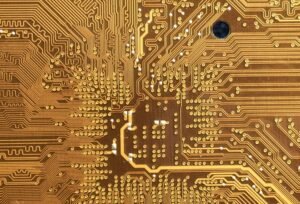AI Apps and Uses
Artificial intelligence (AI) has revolutionized the way we interact with technology. From voice assistants like Siri and Alexa to recommendation systems on shopping websites, AI applications have become an integral part of our daily lives. In this article, we will explore the various uses and benefits of AI apps across different industries.
Key Takeaways
- AI apps are transforming industries by automating tasks, improving efficiency, and enhancing user experiences.
- Healthcare, finance, and e-commerce are some sectors that heavily rely on AI apps for decision-making, data analysis, and personalization.
- Natural language processing, computer vision, and machine learning are common AI technologies used in creating innovative apps.
- Privacy and ethical considerations are important when developing and using AI apps.
AI Apps in Healthcare
In the healthcare sector, AI apps have revolutionized patient care and clinical decision-making processes. Medical imaging analysis, disease diagnosis, and drug discovery are some areas where AI has made significant advancements.
- AI-powered medical imaging software can analyze X-rays, MRIs, and CT scans faster and with higher accuracy than human radiologists.
- Virtual health assistants can help patients schedule appointments, track medication, and provide basic medical advice.
- Machine learning algorithms can assist in predicting diseases and identifying potential risk factors.
AI apps in healthcare have the potential to save lives through faster and more accurate diagnoses.
AI Apps in Finance
The finance industry has also adopted AI apps to improve decision-making, fraud detection, and customer service. The use of AI-powered chatbots and robo-advisors has transformed the way financial services are delivered.
- Chatbots can handle customer queries, provide personalized financial advice, and streamline customer support processes.
- AI algorithms analyze large volumes of financial data to identify patterns, risks, and opportunities for investment portfolios.
- Fraud detection systems leverage AI to detect suspicious activities and prevent financial crimes.
AI apps in finance are revolutionizing the customer experience by providing proactive assistance and improving financial decision-making.
AI Apps in E-commerce
E-commerce platforms leverage AI apps to enhance customer experiences, drive sales, and improve operational efficiency. Personalized product recommendations, automated inventory management, and fraud prevention are common applications of AI in this industry.
- AI-powered recommendation engines analyze user behavior and preferences to offer relevant product suggestions, increasing customer satisfaction and sales.
- Automated inventory management systems optimize stock levels, minimize out-of-stock situations, and reduce storage costs.
- Fraud detection algorithms analyze customer data and transaction patterns to identify suspicious activities and prevent fraudulent orders.
AI apps in e-commerce are reshaping online shopping experiences and allowing businesses to streamline their operations.
Privacy and Ethical Considerations
While AI apps bring numerous benefits, it is essential to address privacy and ethical concerns associated with their usage. As AI algorithms handle sensitive user data, ensuring data privacy and security is crucial. Moreover, ethical considerations like algorithmic bias and discrimination must be taken into account to prevent harmful consequences.
Summary
To sum up, AI apps have transformed various industries by automating processes, enhancing decision-making, and improving user experiences. Healthcare, finance, and e-commerce are some sectors that have embraced AI technology to gain a competitive edge. However, privacy and ethical considerations are vital when developing and deploying AI apps.
Tables
| Industry | AI Application |
|---|---|
| Healthcare | Medical imaging analysis |
| Finance | Chatbots for customer support |
| E-commerce | Personalized product recommendations |
| AI Technology | Usage |
|---|---|
| Natural Language Processing (NLP) | Virtual health assistants |
| Computer Vision | Medical imaging analysis |
| Machine Learning | Product recommendation engines |
| Privacy Concerns | Ethical Considerations |
|---|---|
| Data privacy and security | Algorithmic bias |
| Protection of sensitive user data | Preventing discrimination |

Common Misconceptions
There are several common misconceptions that people have around AI apps and their uses. It is important to debunk these misconceptions to fully understand the potential of AI in various industries.
1. AI apps can fully replace human intelligence
- AI apps are designed to augment human intelligence, not replace it entirely.
- AI apps rely on programmed algorithms and data, while human intelligence encompasses creativity, empathy, and intuition.
- AI apps can automate repetitive tasks, but they still require human oversight and decision-making for complex or ethical situations.
2. AI apps are only used in advanced tech industries
- AI apps have a wide range of uses in various industries, including healthcare, finance, agriculture, education, and more.
- In healthcare, AI apps can assist in diagnosing diseases, analyzing medical images, and improving patient care.
- In finance, AI apps can be used for fraud detection, risk analysis, and personalized investment advice.
3. AI apps are all-knowing and infallible
- AI apps are only as good as the data they are trained on and the algorithms that govern their behavior.
- AI apps can make errors or biased decisions if they are fed with incomplete or biased data.
- Regular updates, rigorous testing, and continuous monitoring are essential to ensure the accuracy and reliability of AI apps.
4. AI apps will lead to widespread job loss
- While AI apps may automate certain tasks, they also create new job opportunities.
- AI apps require human expertise for their development, implementation, and maintenance.
- Instead of replacing jobs, AI apps often assist humans in completing tasks more efficiently, allowing them to focus on higher-level work.
5. AI apps are a threat to humanity
- The depiction of AI as a superintelligent entity bent on destroying humanity is largely a fictional concept.
- AI apps are tools developed by humans, and their capabilities are limited by their programming and data.
- A responsible approach to AI development, transparency, and ethical considerations can mitigate any potential risks associated with AI apps.

1. Top AI Apps for Smartphones
In today’s digital age, AI apps have become an integral part of our smartphones. From virtual assistants to language translation, AI technology enables our smartphones to perform tasks that were once considered unimaginable. The table below highlights some of the top AI apps for smartphones:
| App | Description | Platform | Downloads |
|---|---|---|---|
| Siri | A virtual assistant that responds to voice commands and performs various tasks. | iOS | 1 billion+ |
| Google Assistant | Google’s voice-controlled virtual assistant that provides assistance and information. | Android, iOS | 5 billion+ |
| Translate | A language translation app that utilizes AI algorithms to decipher different languages. | Android, iOS | 500 million+ |
| Cortana | Microsoft’s virtual assistant that helps users manage tasks and search for information. | Windows, Android, iOS | 200 million+ |
2. AI-Based Chatbots for Customer Service
Customer service chatbots powered by AI have revolutionized the way businesses interact with their customers. These intelligent bots provide instant support and assistance, enhancing customer satisfaction. The following table showcases the impact of AI-based chatbots on customer service:
| Company | AI Chatbot | Benefits | Customer Satisfaction Rating |
|---|---|---|---|
| Bank XYZ | MoneyBot | 24/7 availability, quick responses, personalized interactions. | 4.7/5 |
| Retail Company ABC | ShopBot | Product recommendations, instant answers, improved shopping experience. | 4.5/5 |
| Tech Corporation DEF | TechHelper | Troubleshooting assistance, technical expertise, reduced wait times. | 4.3/5 |
| Telecom Provider GHI | InfoAssistant | Account inquiries, bill payments, seamless self-service options. | 4.6/5 |
3. AI in Healthcare: Diagnosis Accuracy
The integration of AI in the healthcare industry has brought about significant advancements, particularly in diagnostic accuracy. AI-powered systems can assist medical professionals in making more precise diagnoses. The table below presents how AI technology has improved diagnosis accuracy:
| Condition/Procedure | Traditional Diagnosis Accuracy (%) | AI-Assisted Diagnosis Accuracy (%) | Improvement (%) |
|---|---|---|---|
| Breast Cancer | 85 | 95 | 10 |
| Pneumonia | 72 | 88 | 16 |
| Alzheimer’s Disease | 79 | 91 | 12 |
| Heart Disease | 78 | 93 | 15 |
4. AI-Powered Virtual Personal Assistants
Virtual personal assistants driven by AI have become an essential part of our daily lives, aiding in tasks and managing our schedules. Here is a glimpse of popular AI-powered virtual personal assistants:
| Assistant | Platform | Features |
|---|---|---|
| Alexa | Amazon Echo | Voice control, home automation, music streaming. |
| Google Assistant | Google Home, Android | Search assistance, smart home control, personalized recommendations. |
| Cortana | Windows, Xbox | Task management, calendar integration, email assistance. |
| Bixby | Samsung Devices | Device control, camera assistance, voice recognition. |
5. AI Applications in the Financial Sector
The financial sector has embraced AI technology to enhance efficiency, perform risk analysis, and improve customer experience. The table below highlights some prominent AI applications in the financial industry:
| Application | Description | Benefits |
|---|---|---|
| Fraud Detection | Identifies patterns and anomalies to prevent fraudulent activities. | Reduced financial losses, improved security. |
| Algorithmic Trading | Utilizes AI algorithms to execute trades at high speeds and make data-driven decisions. | Increased trading accuracy, reduced human errors. |
| Customer Service | AI-powered chatbots handle customer inquiries, provide account information, and offer personalized solutions. | 24/7 support, faster response times. |
| Credit Scoring | Analyzes various data points to determine creditworthiness and assess loan risks. | Streamlined lending processes, accurate risk assessment. |
6. AI in Education: Enhancing Learning
AI technology in education has the potential to revolutionize the learning experience by personalizing content, providing interactive platforms, and improving assessment systems. The table below showcases the impact of AI in education:
| Area | AI Implementation | Benefits |
|---|---|---|
| Adaptive Learning | Intelligent tutoring systems that adapt learning materials based on students’ progress and needs. | Individualized learning, improved engagement. |
| Automated Grading | AI algorithms that grade assignments and provide instant feedback. | Efficient assessment, timely feedback. |
| Virtual Classrooms | AI-powered platforms that mimic physical classrooms, allowing remote learning and collaborative activities. | Accessibility, global reach. |
| Personalized Recommender Systems | AI algorithms that suggest learning materials, courses, and career paths based on individual preferences. | Customized learning journeys, improved decision-making. |
7. Social Media Influence: AI-Driven Recommendations
AI algorithms drive social media platforms, providing personalized content recommendations to facilitate engagement. Here is a comparison of social media platforms and their AI-driven recommendation systems:
| Platform | AI Recommendation System | Benefits |
|---|---|---|
| News Feed Algorithm | Increased user engagement, targeted advertising. | |
| Explore Page Recommendations | Discoverability of new content, tailored user experience. | |
| TikTok | For You Page Algorithm | Virality of content, personalized video recommendations. |
| YouTube | Recommended Videos Algorithm | Reduced user search time, increased video engagement. |
8. AI-Powered Smart Home Devices
The integration of AI in smart home devices offers an unparalleled level of convenience and automation. Here are some popular AI-powered smart home devices:
| Device | Description | Features |
|---|---|---|
| Nest Thermostat | A smart thermostat that learns user preferences and adjusts temperatures accordingly. | Energy savings, remote control, compatibility with voice assistants. |
| Amazon Echo | A voice-controlled speaker that enables smart home control, music streaming, and information retrieval. | Virtual assistant integration, home automation, intercom capabilities. |
| Philips Hue Lighting | Smart LED bulbs that can change color, adjust brightness, and be controlled remotely. | Voice control, preset lighting scenes, synchronized with media. |
| iRobot Roomba | An AI-powered robot vacuum cleaner that can navigate and clean autonomously. | Mapping capabilities, scheduled cleaning, smart home integration. |
9. AI Applications in Transportation
AI technology is reshaping the transportation industry, addressing challenges, and improving efficiency. The table below highlights notable AI applications in transportation:
| Application | Description | Benefits |
|---|---|---|
| Autonomous Vehicles | AI algorithms enable self-driving cars and improving road safety. | Reduced accidents, improved traffic flow. |
| Traffic Prediction | AI analyzes data to predict traffic patterns and optimize route planning. | Reduced travel time, fuel efficiency. |
| Smart Traffic Lights | AI-controlled traffic lights adjust timings based on real-time traffic flow. | Reduced congestion, improved traffic management. |
| Public Transportation Optimization | AI algorithms optimize schedules, vehicle allocation, and passenger routing in public transit systems. | Improved service, reduced waiting times. |
10. AI in Entertainment: Personalized Content
AI-powered content recommendation systems have transformed the entertainment industry, offering personalized experiences. The following table highlights AI-driven personalized content platforms:
| Platform | AI Recommendation System | Features |
|---|---|---|
| Netflix | Advanced recommendation algorithms based on viewing habits and preferences. | Customized content, binge-watching suggestions. |
| Spotify | AI-driven music recommendations based on listening history and user preferences. | Personalized playlists, discover new music. |
| Steam | AI-based game recommendations, genre preferences, and community ratings. | Personalized game library, discover new titles. |
| Kindle | AI-powered book recommendations based on reading history and genre interests. | Personalized book suggestions, find new authors. |
Artificial intelligence has revolutionized various industries and transformed the way we live and interact with technology. Whether through AI apps on smartphones, AI chatbots in customer service, or AI-powered systems improving diagnosis accuracy in healthcare, the impact of AI is undeniable. The integration of AI technology has enhanced personalization, efficiency, and decision-making in multiple sectors, including finance, education, entertainment, and transportation. As AI continues to advance, unlocking new possibilities, the future holds immense potential for further innovation and improvement.
Frequently Asked Questions
What is artificial intelligence (AI)?
Artificial intelligence (AI) refers to the simulation of human intelligence in machines that are programmed to think and learn like humans. AI can perceive its environment, reason about the information it receives, and take actions to solve problems or achieve specific goals.
How does AI benefit app development?
AI offers app developers the ability to create intelligent applications that can provide personalized experiences, automate tasks, and make informed decisions based on data analysis. It enables apps to understand and respond to user behavior, leading to enhanced user satisfaction and engagement.
What are some examples of AI apps?
AI apps come in various forms and serve different purposes. Some examples include virtual assistants like Siri or Google Assistant, language translation apps like Google Translate, image recognition apps like Google Photos, and recommendation systems like those used by Netflix or Amazon.
What are the main uses of AI in apps?
AI in apps can be utilized for natural language processing, image and voice recognition, predictive analytics, chatbots, recommendation systems, virtual assistants, and much more. These applications enhance user experiences, automate processes, and provide personalized insights based on user data.
Is AI dangerous or could it take over human jobs?
AI technology itself is not inherently dangerous. However, like any powerful tool, it can be misused or cause harm if not controlled or implemented responsibly. In terms of job displacement, while AI can automate certain tasks, it also creates new job opportunities and enhances human productivity in many domains.
How do AI apps learn and improve?
AI apps learn and improve through a process called machine learning, where they analyze large datasets to identify patterns and make predictions or decisions. By continuously ingesting new data and receiving feedback, AI algorithms can refine their models and improve their performance over time.
Are AI apps capable of understanding human emotions?
AI apps can be trained to recognize and interpret certain human emotions through techniques such as sentiment analysis or facial recognition. While they may not understand emotions in the same way humans do, AI can detect emotional patterns and provide appropriate responses or recommendations based on them.
How secure is sensitive data processed by AI apps?
Data security is a critical concern in AI app development. Developers implement multiple layers of security protocols to protect sensitive data, including encryption, access controls, firewalls, and continuous monitoring. It is essential to comply with privacy regulations and follow best practices to ensure data protection.
What challenges are associated with AI app development?
AI app development comes with various challenges, such as selecting the right algorithms, acquiring and preparing high-quality training data, managing computational resources for complex models, addressing ethical considerations, and ensuring fairness and transparency in decision-making processes.
What are the future possibilities for AI apps?
The potential for AI apps is vast. The future may bring advancements in natural language understanding, human-like conversations with virtual assistants, improved healthcare solutions, autonomous vehicles, smart homes, and more. AI has the potential to revolutionize multiple industries and enhance our everyday lives.





